By Ghulam Haider
Since the death of a prominent journalist Arshad Sharif who was shot from a point blank range on the outskirts of Nairobi – the capital of Kenya a couple of weeks ago, and reported flight abroad of another couple of mainstream journalists has led to a hot debate whether Pakistan is a safe country as far as freedom of media and expression is concerned?
Critics say that particular journalists with specific point of view are being targeted, which also highlights that there is a clear divide among the sections of the journalists’ community in Pakistan as they are seen siding by one political party of the other. Occasionally, Human Rights Watch and Amnesty International have been raising concern about the growing pressure on journalists who criticize the Pakistan government.
Reportedly, television anchor Dr. Moeed Pirzada, political analyst Irshad Bhatti and another television anchor Imran Riaz Khan have flown abroad due to ‘unknown reasons’. Journalists toeing the policy guidelines of any particular party face the wrath of the sitting government and establishment simultaneously. “This is the reason their relatives and sympathizers here and abroad advise journalists toeing the lines of the PTI to leave the country for their safety,” a journalist who is a staunch supporter of PTI supporter equipped.
Freedom of the press is the hallmark of any developed and healthy society and it cannot be compromised. It is also true that the Pakistani media now enjoy greater freedom to criticize governments, politicians, powerful establishment and its ubiquitous agencies. A decade ago, all this was unimaginable and unheard of. However, this “freedom” has come at a price as the country has become more insecure for journalists over the past few years.
Headed by cricketer-turned politician Prime Minister Imran Khan, PTI government was overthrown in the wake of the no-confidence vote in April this year. Since his ouster from the Prime Minister Office, Mr. Khan has been on streets, leading protests and rallies to garner public support to force the government to announce general elections earlier than the prescribed period.
The political instability is the recipe for multiple pressures journalists face in the discharge of their duties. There is an atmosphere is fear and majority of the journos are observing self-censorship to ensure their own safety.
The professional journalists have been made complaining to the ‘powers that be’ with critics saying that PML-N supremo Nawaz Sharif had been very vocal against such powers in the past. But, now there has been a major shift in the PLM-N stance, and has been conniving and collaborating with those powers to stifle the press in Pakistan.
The recent events have vividly exposed this collaboration and it is a common notion that people have identified the real face of the PML-N, which is heading the current dispensation formed in the wake of coalition of around eleven political parties.
Freedom of media and speech is imperative to a free and democratic society, but high-level threats facing journalists in Pakistan have made it extremely challenging to report impartially. Though the PML-N claims to have belief in freedom of expression and has never been involved in hurling threats on journalists, but a lot of (journalists) have been booked during its tenure, which is the leading cause of unrest among the journalists community. Though the atmosphere is very scary for the working journalists, yet the PML-N would be the major loser in future.
Member and former secretary general of Pakistan Federal Union of Journalists Nasir Zaidi says that Dr. Moeed Pirzada, Imran Riaz and Irshad Bhatti are political commentators and analysts. “We support and express solidarity with them. One should not targeted for having difference of opinion,” he says, adding that they should have shared the threat perception with the PFUJ so that the matter could be discussed with the government. It is a commonly believed that all the three journalists have close affiliation with the PTI.
Journalists are intimidated or silenced altogether, whether in the form of assault, enforced disappearances, murder or overt censorship. However, leaving country in the name of the freedom of expression by journalists has not been welcomed even by the journalists community. There have been a lot of journalists who have been targeted by the powers that be and the governments in power, they were jailed and punished but never left the country. They have fought for freedom of expression while living and facing threats in the country. How can one be proponent of freedom of expression when one leaves the country in the name threats?
Though the PML-N is facing severe criticism for stifling press in Pakistan. Critics have been reminding Pakistan Peoples Party and other coalition parties of their past when they used to make tall claims for freedom of expression.
However, the PTI government tenure was also no less than appalling for the media when journalists were harassed by the party activists and even women journalists and anchors were harassed and trolled by cabinet members, which is unheard of in any civilised society. Those who did not succumb to the government’s pressure were punished financially which harmed media houses and media persons equally pushing the industry towards a financial bankruptcy.
It is tragedy that every sitting government does not want factual news, but vouches for and welcomes news only in its favour in the media. Same is the case with the journalists who sacrifice objectivity and become southpaws of establishment, government and political parties.
The PML-N has been declaring such allegations as rubbish as the journalists in question never shared threat perception with the government at any level. Vice President PML-N Punjab and Senator Saud Majeed is of the view that such acts of the journalists are aimed at defaming the country.
Recalling the letter written by Mr. Khan to the International Monetary Fund (IMF) to stalling the much-need financial loan support to Pakistan, the Senator says that the 70-year-old PTI chief has tried to sabotage Prime Minister Shahbaz Sharif’s visit to China. “First he announced long march and now these journalists have left the country just as tool of propaganda to defame the country as the violator of human rights,” he says.
The obvious aspect of this scenario is that journalists must not promote specific agenda, and instead of becoming henchmen of political parties they should strive for objectivity. They should be very careful about the fact-check of the news for further analysis.
Unfortunately, investigative journalism has been vanishing fast and sections journalists have aligned themselves with one political party or the other to vehemently promote their manifestoes and agendas.
It is about time that the journalists follow objectivity in the discharge of their duties and government creates an enabling environment through initiating a dialogue with stakeholders including media houses/owners, journalist associations and practitioners to devise a strategy to protect the freedom of press in the country.
The Committee to Protect Journalists (CPJ) and the International Federation of Journalists (IFJ) have both declared Pakistan the most dangerous country for journalists—more perilous than Mexico, Afghanistan and Iraq, and is ranked the fifth most dangerous place for the practice of journalism. According to the media reports, 138 media persons in the country had lost their lives in the line of duty between 1990 and 2020.

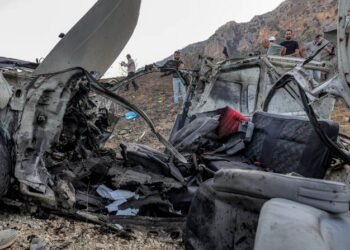

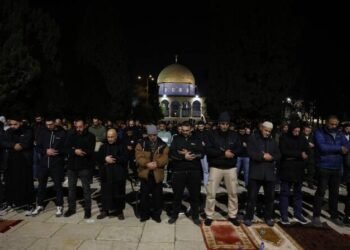
 United Arab Emirates Dirham Exchange Rate
United Arab Emirates Dirham Exchange Rate

